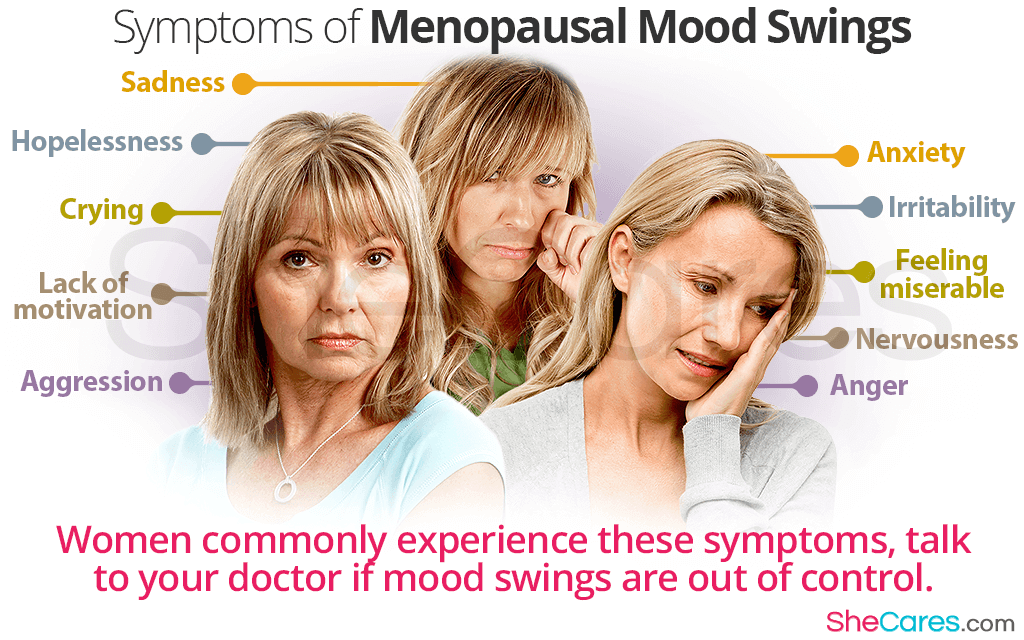Euphoric states quickly followed by an uncontrollable crying. Sudden attacks of anger that turn into sadness. Many women would agree that menopausal mood swings can significantly disturb their life. They are one of the most common symptoms of menopause, along with hot flashes or fatigue, and there are ways to manage them. Read to learn everything you need to know about menopausal mood swings.
What Are the Symptoms of Menopausal Mood Swings?
Every woman experiences menopause differently. Not all suffer from mood swings, but when they do, they typically report abrupt fluctuations in mood, which can include any of the following symptoms:
- Sadness
- Crying
- Hopelessness
- Feeling miserable
- Lack of motivation
- Anger
- Anxiety
- Irritability
- Aggression
- Nervousness
Do Hormones Cause Mood Swings?
During menopause, the levels of the reproductive hormones, estrogen and progesterone, change drastically. Some women are more sensitive to those hormonal shifts and suffer from mood swings and other menopausal symptoms.
Science has shown that hormonal fluctuations can result in decreased levels of serotonin, which is a neurotransmitter that naturally stabilizes the mood and enhances happiness. Women with low serotonin levels report having more frequent mood changes, such as being more anxious, angry, and often overwhelmed by sadness.
Are Menopausal Mood Swings Treatable?
Mood swings can be managed in several ways with or without pharmacological intervention. The most common treatments include:
Natural Treatments
- Omega-3 fatty acids, choline, and magnesium as dietary supplements have been linked with mood stabilizing properties.
- Several herbs, which include thodiola rosea, winter cherry, kava kava, or schizandra, have shown to be powerful mood enhancers and anti-depressants.
- Alternative therapies, such as meditation, yoga, or aromatherapy have been recognized for promoting an emotional stability.
Medication
- Psychotherapy offers numerous treatments, which focus on gaining control over the mood and thought patterns.
- Antidepressants can manage moods swings, but sometimes they induce manias and anxiety.
- Mood stabilizers, such as lithium and anticonvulsants, can also be used to treat moodiness in menopause.
- Hormone replacement therapy (HRT) are usually prescribed in severe cases or when other symptoms, such as hot flashes, are also present.
When Should I See a Doctor?
Mood swings due to hormonal imbalance are not usually dangerous, and they fade away as soon as menopause is over. However, some women feel that their emotional imbalance prevents them from functioning normally and sometimes puts them at risk of substance abuse or even hurting themselves or others. You should always let your doctor know about extreme mood swings are out of control to ensure that they are not signaling a mental health illness, such as depression or bipolar disorder.
Women commonly experience hormone-triggered mood swings at many stages during their lifetime, starting in their teens through their reproductive years until menopause. Science does not understand why some women are more prone to mood swings than others, but it is estimated that almost 75% experience them during menopause. A combination of several management strategies usually brings relief to most women and enables them to restore their emotional balance.
